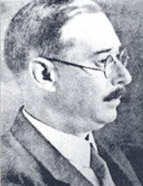

Sílvio Lima, following in the master ’ s footsteps, accuses the movement of being anti-innovative, because concessions to anything new were ‘neutralised within the dogmatic principles of the metaphysical-peripatetic tradition’ ( Sílvio Lima, um místico da razão crítica (da incondicionalidade do amor intellectualis [Silvio Lima, a mystic of critical reason (of the unconditionality of amor intellectualis)] ) , 2009, p. 540). Ontologising or adjectivising the issue, especially by not dividing Carvalho ’ s (and Ortega ’ s 1914 generation ) deep-rooted patriotism from his convinced Europeanism and, as a ‘European, always attentive to the call for conciliation and the spiritual unity of the world’ ( OC , III, p.349), would be to distort what, ab ovo , constituted the innovative methodological requirement of the programme it had originated. Only within the multidisciplinary area of historical cultural studies would the philological and hermeneutic enquiry of philosophy make sense. The ‘object’ had been de - objectified : ‘what matters is not that there should be something with the name of History of Philosophy in Portugal’, he noted in 1952, ‘but that whatever is done under this title should be done in the only serious way in which things should be done, which is to do them well’ ( OC , VIII, 239). It was (and is) the query noun, even if cluttered with the sophistic adverb.
3. This fact is not insignificant, if we look in particular at his probing of Hebrew genealogy in Portuguese culture. JC cultivates a tacit pride in his Talmudic roots, clearing up the tension between two opposing religious natures: the kabbalistic philosopher ’ s stone of the apothecaries , a messianism imprisoned by the hope of the i ntangible and neighbouring, which leads him to investigate the intellectual conception of the Deity in Judaism; and the opposing Catholic dogmatic tradition, for which the God-Person deified himself in his humanity.
It is the life (and Portuguese origins) and work of the Jew Baruch Spinoza, the libertas philosophandi and the philosophy of freedom, that have earned him the most enlightened exposure in Portuguese critical literature, announced in Oróbio de Castro e o espinosismo [Oróbio de Castro and Spinosism] (1936), confirmed in the excellent preface to Ética (1950). He wrote some of his best texts on Jews, especially the culture of the Sephardim : Abraham Zacuto, Isaac Abravanel and Leão Hebreu, Uriel da Costa (correlated with Spinoza), Pedro Nunes, trying to free them from that ‘wave of anonymity that covered Israel in the early days of the Iberian diaspora’ ( Idem , II, p.41), but also on Jacob de Castro Sarmento, Ribeiro Sanches. The character and work of Hebrew philosophers, physicists and cosmographers exerted an enormous attraction on him. As has been noted, a large part of his intellectual work would reply to this question, prompting him to investigate the art of navigation ‘communicating it with the stars’ ( Biblos , 1980, p.4) and articulating it (without subordinating it) to thought, whose signs he tried to decipher in the grammars of temporality, following Dilthey and Rickert.
This work is financed by national funds through FCT - Foundation for Science and Technology, I.P, in the scope of the projects UIDB/04311/2020 and UIDP/04311/2020.
